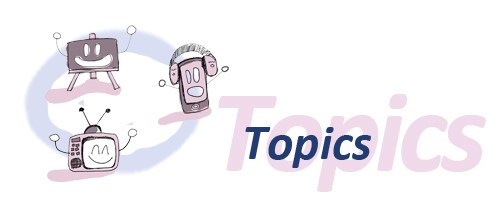Happiness & Communication: lights and shadows
Positive communication approach will be addressed from a critical point of view in this first edition.The happiness of being long defunct within our modern societies, both in the public sphere as well as private, in recent years it has become the protagonist of speeches in all kinds of contexts, particularly in the media. The contents treated around it are monopolizing minutes on radio and television, newspaper space, on bookstore shelves, on the walls and windows as posters announcing all sorts of products, services, initiatives and events, with more or less scientific rigor and human values associated.
On the other hand, internal and external communication in companies is working on something similar. It seems that indeed the happiness and welfare of the people within companies and organizations of all kinds has become a target. It is present in many of the organizational route sheets, something unsuspected years ago.
Education is also talking about welfare and happiness of students. Positive education whose ultimate goal is the happiness of the children based on personal and intellectual development has already impact in school discourses. Positive communication has much to contribute in this binomial happiness-education.
Topics
1. Positive Media

Old media remains one of the major influencers in our societies although social media is also an influencer. The objectives that articulate this first topic will therefore investigate the role that both the purely journalistic content as entertainment may be having in relation to positive psychological and psychosocial effects on receptors, analyze and reflect on the presence of happiness in the media, if they are really working as entities “educators happiness” or else we are far from this media boom “positivity” is serving to promote social change in this regard.
2. Positive PR, Advertising and Marketing

There are few who have been working on today around the positive marketing, and therefore also of the positive publicity, that is, the advertising (or PR and marketing) that aside from meeting their business objectives, are profitable or not, promotes strategies and messages with their welfare and happiness of the target audiences. Whether one or another of the elements of happiness, increasingly supported scientifically, like happiness itself as a generic concept, the fact is that this has become strategic to many products, brands and companies. How far will self this type of strategy? Are they effective, one way and another? Are they sustainable? Are they sincere? There are multiple questions that arise.
3. Positive Digital Technologies
The third topic focuses on digital reality that surrounds us. The relationship could be implanted between digital technologies and happiness is a debate with a certain tradition. Do we do these happier or unhappier technologies? Is Internet a source of welfare or the opposite? Can we properly speak of the existence of “positive technologies (digital)”? On the other hand, is the subject of this axis to observe and reflect on the presence of happiness in internet and digital media in general
4. Positive Organizational Communication

Beyond advertising, public relations and external communications in general, happiness has penetrated the company also in their internal communication strategies, plans CSR into their management development programs and leadership. To what extent this is true? How big is or should be all in a contemporary setting of the organization? Is happiness and development in domestic government, penetrating truth to the philosophy and practice of business or just for now is staying in the epidermis? Can we or should we talk about management of corporate happiness or premature?
5. Positive Education

One of the places where human communication is absolutely protagonist is in education. On the other hand, the weight that the school has for the happiness of children, which will then be adults, is immeasurable. Therefore, the space created between the three vertices (education, communication and happiness) which will require our attention in this case. What is the state of affairs regarding the positive education first? You really are mindful that perspective in the daily work in schools and classrooms? Are we educating in and for the happiness of people in addition to for both intellectual and emotional comprehensive personal development? What connections do occur, in that sense, with other areas of social media? Could one speak of positive media literacy?



